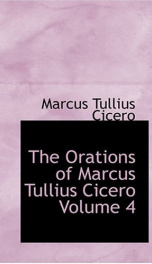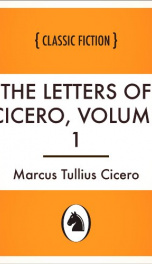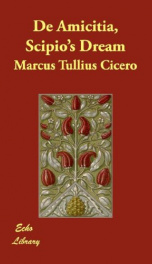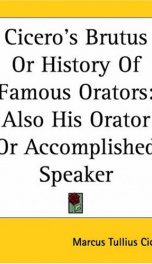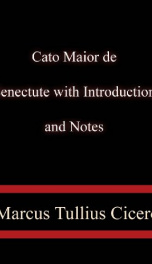Treatises on Friendship and Old Age
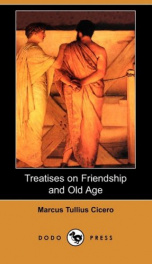
Marcus Tullius Cicero (106 BC-43 BC) was a Roman statesman, lawyer, political theorist, philosopher, and Roman constitutionalist. He is widely considered one of Rome's greatest orators and prose stylists. He is generally perceived to be one of the most versatile minds of ancient Rome. He introduced the Romans to the chief schools of Greek philosophy and created a Latin philosophical vocabulary, distinguishing himself as a linguist, translator, and philosopher. An impressive orator and successful lawyer, he probably thought his political career his most important achievement. Today, he is appreciated primarily for his humanism and philosophical and political writings. Although a great master of Latin rhetoric and composition, Cicero was not Roman in the traditional sense, and was quite self-conscious of this for his entire life. He was declared a "righteous pagan" by the early Catholic Church, and therefore many of his works were deemed worthy of preservation. Saint Augustine and others quoted liberally from his works On the Republic and On the Laws, and it is due to this that we are able to recreate much of the work from the surviving fragments.
Info about the book
Author:
Series:
Unknown
ASIN:
146372585X
Rating:
0.5/5 (40)Your rating:
0/5
Languge:
English
Users who have this book
Users who want this book
What readers are saying
What do you think? Write your own comment on this book!
write a commentif you like Treatises on Friendship and Old Age try:
Other books by this author
Do you want to exchange books? It’s EASY!
Get registered and find other users who want to give their favourite books to good hands!





















